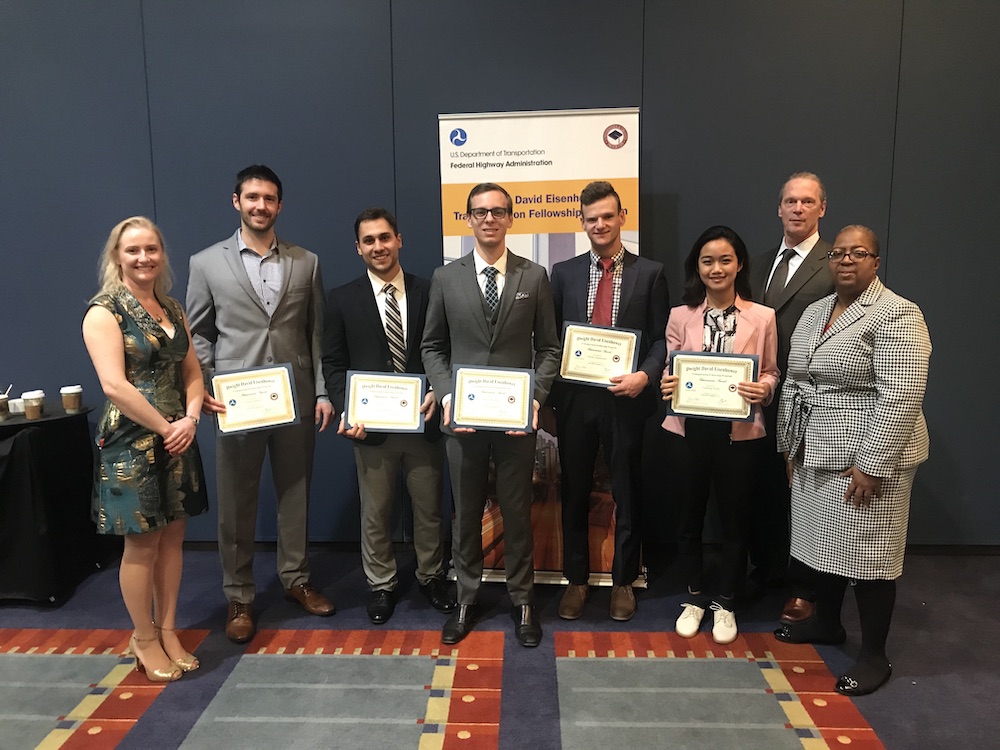
Five engineering Ph.D. students have received prestigious Dwight David Eisenhower Transportation Fellowships and one of them was named the top Eisenhower Fellow in the U.S.
The fellows were selected through a competitive process that included university panels and a national selection panel. The awards, up to $30,000 each, are made by the U.S. Department of Transportation’s Federal Highway Administration. The Eisenhower fellows were honored at the recent Transportation Research Board of the National Academies at its annual meeting in Washington D.C.
The showing recognizes areas of strength for Vanderbilt that include transportation risk, reliability, and resilience analysis and transportation cyber physical systems. All four winners from 2019 were named again, as was Paul Johnson, an advisee of Mark Abkowitz, professor of civil and environmental engineering.
“The awarding of these Eisenhower Fellowships to five of our Vanderbilt graduate students reflects the quality and relevance of the transportation research portfolio that our faculty members are pursuing, which is in turn attracting the very best graduate students in the country to our campus,” said Craig Philip, director of the Vanderbilt Center for Transportation and Operational Resiliency.
The Ph.D. students and their study areas are:
- Will Barbour, civil and environmental engineering, advised by Dan Work, associate professor of civil and environmental engineering and computer science. Barbour, a four-time recipient, focuses on artificial intelligence solutions for efficient and sustainable railroad operations. He also works on research in smart cities technology, personal mobility and large-scale transportation data.
- Charles Doktycz, civil and environmental engineering, advised by Abkowitz. His research involves the risk and resilience of infrastructure systems affected by severe weather. Doktycz, a third-time recipient, uses loss and damage databases to determine vulnerable areas of a community in order to make climate adaptation decisions. This is his second year as an Eisenhower Fellow.
- Derek Gloudemans, electrical engineering and computer science, advised by Work. His research involves using machine learning methods for detection and classification of faulty components in electric motors. This is his second year as an Eisenhower Fellow.
- Yanbing Wang, civil and environmental engineering, advised by Work. Her research involves estimation for complex traffic flow that involves multiple mobility services, such as bikes, scooters along with passenger cars. This is her second year as an Eisenhower Fellow.
- Paul Johnson, civil and environmental engineering, advised by Abkowitz. He uses machine learning and behavioral models to quantify decision-making patterns in environments where stakeholders have competing and cooperative objective and limited resources.
All five students are members of VECTOR and several are research assistants at the Vanderbilt Institute for Software Integrated Systems. Some also are involved in MoveVU, linking their research and transportation challenges facing Nashville as well as Vanderbilt.
The Eisenhower Transportation Fellowship Program aims to advance transportation workforce development and attract the nation’s brightest minds to transportation fields.